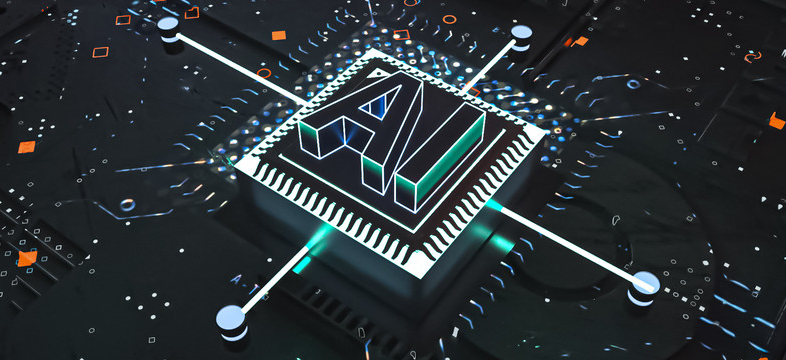Table of Content
In today’s rapidly evolving technological landscape, Artificial Intelligence (AI) has emerged as a game-changing force, reshaping the way we live, work, and interact with the world around us. From the moment we wake up to the time we go to bed, AI is quietly working behind the scenes, making our lives easier, more efficient, and increasingly connected. In this comprehensive guide, we’ll explore the countless ways AI enhances our daily routines and unlocking new possibilities for the future.
Advantages of AI in daily life | 22 Benefits

1. Enhanced Decision-Making
AI helps us make smarter choices by analyzing massive amounts of data and spotting patterns we might miss.
Example: In finance, AI tools can analyze market trends to guide investors in making informed decisions.
2. Round-the-Clock Availability
Unlike humans, AI can work tirelessly around the clock without breaks.
Example: Customer service chatbots assist customers anytime, ensuring help is available 24/7.
3. Digital Assistance
AI-powered digital assistants simplify our lives by handling tasks we might find tedious.
Example: Virtual assistants like Siri or Alexa can set reminders, control smart home devices, and answer questions, making everyday tasks easier.
4. Innovative Breakthroughs
AI is at the forefront of innovation, helping solve complex problems in various fields.
Example: AI algorithms in healthcare can detect early signs of diseases like cancer, significantly improving patient outcomes.
5. Objectivity in Decision-Making
AI makes decisions based on data, free from emotional bias.
Example: AI recruitment tools screen candidates based solely on skills and qualifications, promoting diversity and inclusion in hiring.
6. Automation of Repetitive Tasks
By automating mundane tasks, AI frees up our time for more creative endeavors.
Example: AI can manage scheduling and data entry, allowing employees to focus on strategic projects.
7. Everyday Integration
AI has become a part of our daily lives, enhancing convenience through various applications.
Example: Navigation apps like Google Maps use AI to provide real-time traffic updates and route suggestions, making travel smoother.
8. Applications in High-Risk Scenarios
AI can operate in perilous situations where humans cannot, such as during natural disasters.
Example: Drones equipped with AI can survey areas affected by wildfires, providing crucial data for emergency responders.
9. Transformative Medical Applications
AI is revolutionizing medicine by improving diagnosis and treatment processes.
Example: AI can analyze mammograms to detect breast cancer, helping doctors identify issues earlier and improve patient care.
10. Boosted Efficiency and Productivity
AI enhances efficiency by optimizing workflows and processes.
Example: In manufacturing, AI-driven robots can work alongside humans, increasing production rates and reducing errors.
11. Enhanced Fraud Detection
AI is a powerful ally in the fight against fraud, analyzing transaction patterns to spot anomalies.
Example: Banks use AI systems to monitor transactions in real-time, flagging any suspicious activity instantly.
12. Improved Human Workflow
AI identifies bottlenecks in workflows, suggesting improvements to make processes more efficient.
Example: Project management tools powered by AI can help teams streamline tasks, ensuring projects are completed on time.
13. Tailored Customer Experiences
AI personalizes experiences by learning what people like.
Example: For instance, Netflix looks at the shows you’ve watched and recommends new ones you’ll probably enjoy, making it easier to find something you like.
14. Advanced Surveillance Capabilities
AI enhances security by monitoring environments for unusual activities.
Example: Smart city surveillance systems can detect suspicious behavior and alert authorities, helping keep communities safe.
15. Identifying and Addressing Bias
AI can help uncover and reduce bias in decision-making processes, fostering fairness.
Example: AI tools used in hiring can focus on candidates’ skills rather than demographic factors, promoting a diverse workplace.
16. Significant Cost Reductions
By automating routine tasks, AI leads to considerable cost savings for businesses.
Example: Chatbots can handle customer inquiries, reducing the need for large customer service teams and lowering operational costs.
17. Increased Workforce Efficiency
AI tools help optimize work processes, allowing employees to focus on more important tasks.
Example: AI in project management can prioritize tasks, making it easier for teams to meet deadlines.
18. Personalized Interactions
AI delivers highly customized experiences by analyzing user behavior.
Example: E-commerce sites use AI to recommend products based on past purchases, increasing customer engagement and sales.
19. Better Decision Support
AI enhances decision-making by providing valuable insights from data analysis.
Example: Financial advisors can use AI to analyze economic trends, helping clients make informed investment choices.
20. Advanced Data Processing
AI processes large datasets quickly, providing insights that inform strategic decisions.
Example: In retail, AI analyzes consumer trends to help companies optimize inventory and boost sales.
21. Effective Problem-Solving
AI assists in finding solutions to complex challenges across various fields.
Example: AI systems are used in logistics to optimize delivery routes, reducing costs and improving service efficiency.
22. Enhanced Predictive Analytics
AI enables businesses to forecast trends and outcomes based on historical data.
Example: Retailers can use AI to predict customer purchasing behaviors, helping them stock the right products at the right time.
Advantages and Disadvantages of Artificial Intelligence
Advantages of ai
- Speed: AI can process information much faster than humans
- Accuracy: AI can be more precise in certain tasks, reducing human error
- Availability: AI can work 24/7 without getting tired
- Handling big data: AI can analyze huge amounts of information quickly
- Automation: AI can take over repetitive tasks, freeing up human time
Disadvantages of ai:
- Job displacement: Some jobs may be lost as AI takes over certain tasks
- Lack of creativity: AI struggles with truly original thinking
- High costs: Developing and maintaining AI systems can be expensive
- Privacy concerns: AI often requires large amounts of data, raising privacy issues
- Potential for misuse: AI could be used for harmful purposes if not properly controlled
Conclusion
As we’ve explored throughout this blog, the advantages of AI in our daily lives are vast and far-reaching. From the moment we wake up to smart home devices adjusting our environment, through our workday enhanced by AI-powered productivity tools, to our evening entertainment curated by intelligent recommendation systems, AI is quietly revolutionizing every aspect of our routines.
The potential of AI to solve complex problems, from healthcare challenges to environmental issues, is immense. It’s making our lives more convenient, our work more efficient, our healthcare more personalized, and our world more connected. As AI continues to evolve, we can expect even more innovative applications that will further transform our daily experiences.
However, as we embrace this AI-enabled future, it’s crucial to approach it thoughtfully and responsibly. Addressing challenges such as job displacement, privacy concerns, and ethical considerations will be key to ensuring that the benefits of AI are equitably distributed and that the technology serves humanity’s best interests.
By staying informed, engaging in discussions about AI policy and ethics, and being open to the possibilities that AI presents, we can all play a part in shaping a future where artificial intelligence enhances and empowers human potential rather than replacing it.
The AI revolution is not a distant future – it’s happening now, in countless small ways that add up to significant improvements in our quality of life. As we continue to explore and expand the capabilities of AI, we stand on the brink of a new era of human-AI collaboration, one that promises to unlock unprecedented levels of innovation, efficiency, and discovery. The future is AI-enabled, and it’s looking brighter than ever.
FAQs on Advantages of AI
Can i use ai at at work
Yes, AI can be used at work, but make sure to stick to your company’s policies. Use only approved tools and handle any data securely. AI can boost your productivity, but always use it wisely and follow the guidelines.
Is AI content detection accurate?
AI content detectors are generally accurate, but they may not be perfect. They are continually improving, but it’s important to review the results and use them as a guide rather than a definitive judgment.
Can AI write essays?
Yes, AI can write essays! Tools like Chatgpt and Gemini can generate content based on prompts you provide. They analyze information and help create structured essays, making the writing process faster and easier.

Leave a Reply